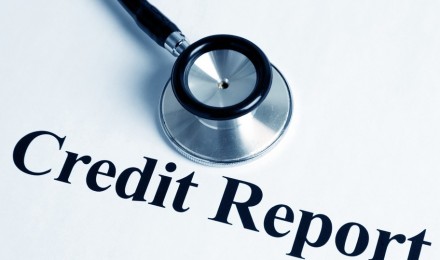Credit card companies have become more aggressive than ever in trying to collect unpaid debt. If you are behind in your bills and owe your creditors money, you may find the creditor coming after you and filing a lawsuit against you. If the creditor wins, you could end up with a judgment on your public record, which has a serious adverse impact on your credit. You could also end up having your wages garnished or having a lien placed on your property if your creditor makes the effort to collect. This can be devastating as you’ll lose income that you need or you will be faced with the inability to sell your home if you need to.
Because of the serious consequences associated with being the subject of a credit card lawsuit, you need to take action if your credit card company files against you. Many people choose to ignore a credit card lawsuit because they don’t want to deal with it, don’t know how to deal with it or assume that the credit card company will win. Ignoring the lawsuit is the worst thing you can do, though, since the judge will have no choice but to find for the credit card company if you don’t come to court to defend yourself. Not only does this mean you’ll give up the opportunity to fight for your rights, but it also means that whatever the credit card company says goes- even if they’ve inflated the debt or have incorrect records.
What to Do If You are the Subject of a Lawsuit
Since ignoring the lawsuit is a bad option when you’re faced with a credit card lawsuit, it is important to know what to do instead. In general, the best and smartest choice is to contact a lawyer. Your attorney can help you to understand all of your legal options and can help you to respond to the lawsuit that has been filed against you. There are specific court rules of procedure that need to be followed and if you try to represent yourself or deal with the credit card lawsuit yourself, you may find yourself doing something wrong and jeopardizing your right to make arguments. If you cannot afford a lawyer, you should consider looking into legal aid services or into clinics in law schools in your area.
If you cannot or do not wish to hire a lawyer, however, you still need to take action to defend yourself. To do this:
- Review the information that you were given by the process server about the lawsuit. Read it carefully to identify when your court date is, who the plaintiff is (who is suing you) and how to answer the complaint. There usually will be a form or other instructions telling you how to answer.
- Answer the complaint by the due date. You typically have between 20 and 30 days to answer. If you do not do this, then you can lose your right to fight the lawsuit. When you answer the complaint, you need to explain whether you agree with the accusations made about the creditor and you need to explain why. Each individual allegation made against you by the creditor needs to be either admitted or denied, otherwise you are assumed to be admitting that the creditor is correct. Once you’ve written out your answer to the complaint, submit it to the appropriate court in your area as well as to the lawyer who is representing the credit card company.
- Build your case. If you have denied allegations against you, you’ll have to go to court and you and the creditor will both be given the chance to present evidence to the judge. You will have a “discovery” process prior to going to court to help you collect evidence (and can make requests from the creditor at this stage) and you will need to present your evidence and witnesses in accordance with the court rules. Your evidence can include affirmative defenses (such as arguing that there is no proof of the debt) or a denial of the accusations against you.
When the case escalates to this level, it is especially imperative to have a lawyer representing you in court and helping you to deal with the suit against you. If you do not feel that you have any possible arguments to win the suit and if you believe that you are likely to have a judgment issued against you, you may also wish to speak with a lawyer about whether bankruptcy might be right for your situation.
Credit card companies have become more aggressive than ever in trying to collect unpaid debt. If you are behind in your bills and owe your creditors money, you may find the creditor coming after you and filing a lawsuit against you. If the creditor wins, you could end up with a judgment on your public record, which has a serious adverse impact on your credit. You could also end up having your wages garnished or having a lien placed on your property if your creditor makes the effort to collect. This can be devastating as you’ll lose income that you need or you will be faced with the inability to sell your home if you need to.
Because of the serious consequences associated with being the subject of a credit card lawsuit, you need to take action if your credit card company files against you. Many people choose to ignore a credit card lawsuit because they don’t want to deal with it, don’t know how to deal with it or assume that the credit card company will win. Ignoring the lawsuit is the worst thing you can do, though, since the judge will have no choice but to find for the credit card company if you don’t come to court to defend yourself. Not only does this mean you’ll give up the opportunity to fight for your rights, but it also means that whatever the credit card company says goes- even if they’ve inflated the debt or have incorrect records.
What to Do If You are the Subject of a Lawsuit
Since ignoring the lawsuit is a bad option when you’re faced with a credit card lawsuit, it is important to know what to do instead. In general, the best and smartest choice is to contact a lawyer. Your attorney can help you to understand all of your legal options and can help you to respond to the lawsuit that has been filed against you. There are specific court rules of procedure that need to be followed and if you try to represent yourself or deal with the credit card lawsuit yourself, you may find yourself doing something wrong and jeopardizing your right to make arguments. If you cannot afford a lawyer, you should consider looking into legal aid services or into clinics in law schools in your area.
If you cannot or do not wish to hire a lawyer, however, you still need to take action to defend yourself. To do this:
- Review the information that you were given by the process server about the lawsuit. Read it carefully to identify when your court date is, who the plaintiff is (who is suing you) and how to answer the complaint. There usually will be a form or other instructions telling you how to answer.
- Answer the complaint by the due date. You typically have between 20 and 30 days to answer. If you do not do this, then you can lose your right to fight the lawsuit. When you answer the complaint, you need to explain whether you agree with the accusations made about the creditor and you need to explain why. Each individual allegation made against you by the creditor needs to be either admitted or denied, otherwise you are assumed to be admitting that the creditor is correct. Once you’ve written out your answer to the complaint, submit it to the appropriate court in your area as well as to the lawyer who is representing the credit card company.
- Build your case. If you have denied allegations against you, you’ll have to go to court and you and the creditor will both be given the chance to present evidence to the judge. You will have a “discovery” process prior to going to court to help you collect evidence (and can make requests from the creditor at this stage) and you will need to present your evidence and witnesses in accordance with the court rules. Your evidence can include affirmative defenses (such as arguing that there is no proof of the debt) or a denial of the accusations against you.
When the case escalates to this level, it is especially imperative to have a lawyer representing you in court and helping you to deal with the suit against you. If you do not feel that you have any possible arguments to win the suit and if you believe that you are likely to have a judgment issued against you, you may also wish to speak with a lawyer about whether bankruptcy might be right for your situation.







